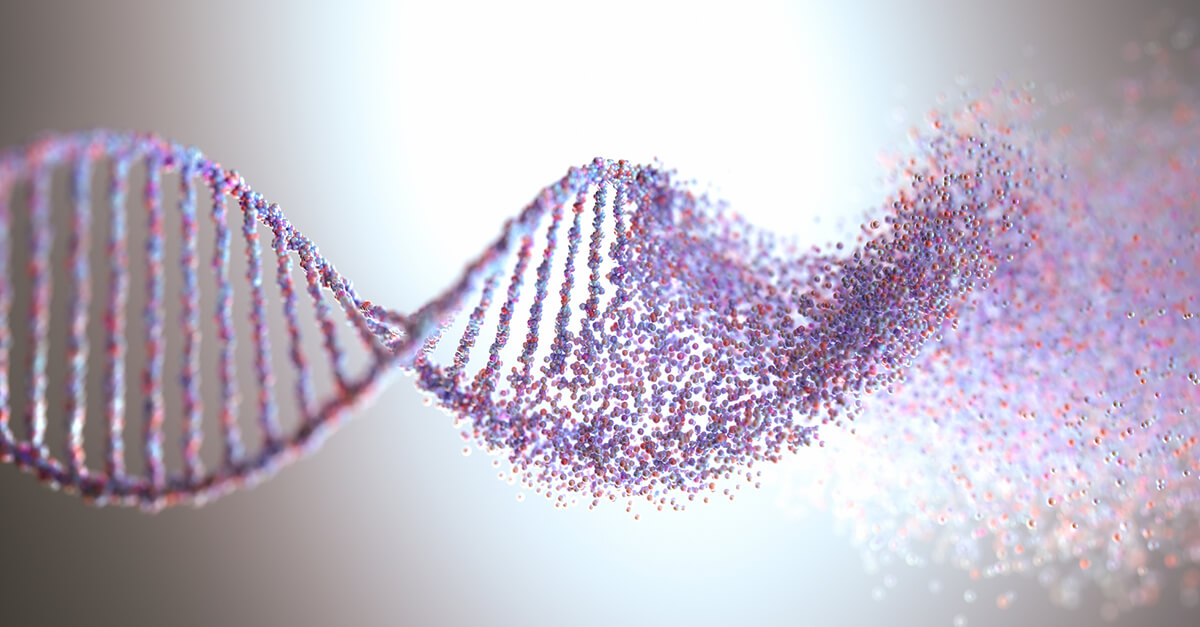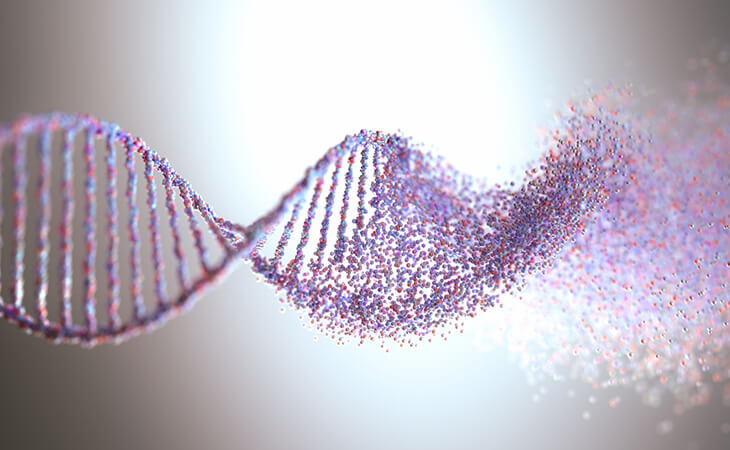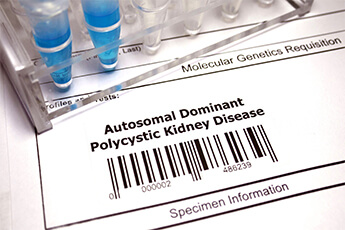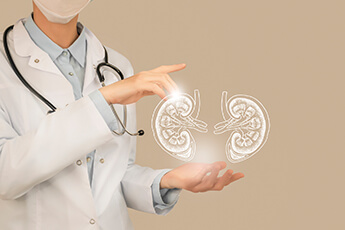ADPKD causes and symptoms


Autosomal dominant polycystic kidney disease (ADPKD) causes the formation of noncancerous (benign) kidney cysts. Some people get thousands of these cysts, which can enlarge the kidneys to the size of a football. The number of cysts and their size affects healthy tissue in the kidneys. As a result, your kidneys have to work harder to filter toxins from the blood and get rid of these toxins in urine.
Symptoms of ADPKD tend to appear during adulthood, which is why the disease is also known as adult PKD. But children can also have ADPKD. The condition causes irreversible kidney damage. ADPKD isn’t common. But unfortunately, there isn’t anything you can do to protect yourself from the underlying cause.
From the community: “My mom had polycystic kidneys, but she passed away… at 58. I don’t know a lot about polycystic kidneys, but the fact that your blood pressure is good is awesome. My brother 31 and my sister 42 also have polycystic kidneys and have struggled with the blood pressure. Today my sister found out that she has 53 percent kidney function which really sucks. She hadn’t been taking her blood pressure meds, and she’s recently gained a lot of weight which may have contributed with the kidney function decline. I hope to learn more about this condition. What I can tell you is that every situation is different, and every person with polycystic kidneys don’t necessarily end up on dialysis.” – Inspire member
What causes ADPKD (adult polycystic kidney disease)?
A gene change, or mutation, causes ADPKD. The term “dominant” means that a person only has to inherit a gene change from one parent to be at risk for getting the disease. Numbered chromosomes are called autosomes, which is why this type of polycystic kidney disease is called autosomal.
An inherited gene change is responsible for almost all (9 out of 10) ADPKD diagnoses. About 85% of people have a changed PKD1 gene on chromosome 16 that causes ADPKD type 1. A smaller percentage have a changed PKD2 gene on chromosome 4 that causes ADPKD type 2. A change to a newly discovered gene called GANAB can also cause ADPKD in certain people. Other yet-to-be-identified gene changes may also be to blame.
The PKD1 gene enables polycystin-1 proteins to interact with polycystin-2 proteins (which the PKD2 gene controls). Together, these proteins help regulate cells in your kidneys and liver. They aid the formation of tubular structures the organs need to secrete fluids. Mutated PKD1 or PKD2 genes create abnormal cells that affect fluid secretions. This leads to the development of abnormal sacs of fluid or kidney cysts.
About 1 in 10 people with ADPKD has no family history of the disease. A spontaneous gene change causes the condition. Doctors call this a de novo mutation (new mutation), which means the gene change occurs for the first time in a family.
From the community: “Has anyone, or do you know of anyone who carries the OFD1 gene. Carriers of this gene may also develop polycystic kidneys. I had two aunts who had this kidney disease. There are only about 6 families in the whole of the UK with the gene though it has been known to appear without being inherited. All the carriers in my family are ill with ME/CFS symptoms and our geneticist recently told me this was similar to another family she knew. If there are other OFD1 carriers out there with similar symptoms it has very interesting implications. The symptoms could be a direct expression of the defect or more likely, it is a defect of the immune system. I would be extremely grateful for any help anyone could give me.” – Inspire member
What are the types of ADPKD?
Which gene change you have determines the type of ADPKD. The severity of the kidney disease also differs depending on the underlying gene change.
PKD1: Disease severity and prognosis are often worse in people who have ADPKD type 1. You’re at greater risk for enlarged kidneys that start to fail (kidney failure) at an earlier age. You may need ADPKD treatments like dialysis when you’re in your mid-50s.
Nontruncating PKD1 mutation: A small number of people have an altered PKD1 gene that doesn’t seem to completely inactivate the polycystin-1 proteins. People with nontruncating PKD1 mutations have less severe kidney disease than those with PKD1.
PKD2: Compared to PKD1, the altered PKD2 gene causes milder symptoms that tend to develop later in life. Someone with this gene change may not experience kidney failure until they’re in their 70s.
GANAB: Researchers are still studying this gene change. But people who have a mutated GANAB gene tend to have milder disease symptoms.
Is my child at risk for ADPKD if I have the disease?
If you have ADPKD, you have a 50% chance of passing on the gene change that causes the disease to each of your children. That risk increases to 75% if both parents have the altered ADPKD gene.
If you have ADPKD, a genetic counselor can discuss ways to lower your risk of passing the altered gene to your children. For instance, doctors can create embryos in a fertility lab, and then use preimplantation genetic testing (PGT) to identify embryos that don’t carry the faulty gene. Doctors then implant the healthy embryos into a woman’s uterus.
From the community: “I am 78 years old and was diagnosed with PCKD some 5 years ago… My Bother is currently on Dialysis and has been for about 3 years and he is 20 months older than me and I am the lucky one.” – Inspire member
What are the symptoms of ADPKD?
ADPKD affects everyone differently. Symptoms of ADPKD vary in type and severity, even among members of the same family. Most people first notice symptoms when they’re in their 30s, 40s, or 50s. Less commonly, symptoms appear during infancy or childhood.
But some people are asymptomatic. Their mild (or nonexistent) symptoms don’t significantly affect their kidney function. It’s estimated that 3 million people worldwide are unaware they have the disease because they don’t have symptoms.
For most people, ADPKD is a progressive disease. Once symptoms occur, they continue to worsen as more and more cysts take up space in the kidneys.
If you have ADPKD, you may experience these symptoms:
blood in your urine (hematuria)
chronic back and side pain
headaches
high blood pressure
kidney stones
urinary tract infections (UTIs)
How else does ADPKD affect your body?
ADPKD affects more than just your kidneys. Problems can develop in other organs. ADPKD increases your risk for:
brain aneurysms
cysts on your liver and pancreas
diverticulitis
heart valve problems
What other illnesses cause ADPKD-like symptoms?
Other genetic disorders can cause symptoms like ADPKD. Your doctor will order imaging scans, and possibly genetic tests, to diagnose ADPKD and rule out other conditions.
These conditions include:
Autosomal recessive polycystic kidney disease (ARPKD): Also called infantile PKD, this kidney disease causes problems as a baby develops in the womb. A child who develops ARPKD inherits a faulty gene from both parents.
Tuberous sclerosis complex: This disorder causes noncancerous (benign) tumors in the brain, kidneys, heart, lungs, skin, and other organs. Symptoms typically appear during a child’s first year of life. Approximately 1 in 3 people with tuberous sclerosis complex (TSC) inherit a change to the TSC1 or TSC2 gene. For most people, the gene change happens for no known reason.
Von Hippel-Lindau (VHL) disease: This disorder causes kidney cysts, as well as other noncancerous and cancerous tumors. The tumors often affect the central nervous system. A change to the VHL gene causes Von Hippel-Lindau disease. This gene typically controls cell growth, helping to prevent the formation of tumors. About 8 in 10 people with VHL disease inherit the gene mutation from one parent, which means it’s an autosomal dominant disease.
Sources
Von Hippel-Lindau disease. Genetic and Rare Diseases Information Center. February 2016.
Autosomal dominant polycystic kidney disease (ADPKD). Kidney Fund.
Polycystic kidney disease. Mayo Clinic. October 2020.
Polycystic kidney disease. MedlinePlus. August 2020.
Autosomal dominant polycystic kidney disease. National Institute of Diabetes and Digestive and Kidney Diseases. January 2017.
Autosomal dominant polycystic kidney disease. National Organization for Rare Disorders. 2015.
What causes ADPKD? PKD Foundation. June 2021.
What is ADPKD? PKD Foundation. June 2021.
What is TSC? TSC Alliance.
Disclaimer
Member comments are lightly edited for length and to remove identifying information but are otherwise reproduced as they appear in the community as part of public posts.
This content is for general informational purposes only and does not necessarily reflect the views and opinions of any organization or individual. The content should not be used as a substitute for professional medical advice, diagnosis, or treatment. Please consult your healthcare provider about any questions you may have regarding a medical condition.




